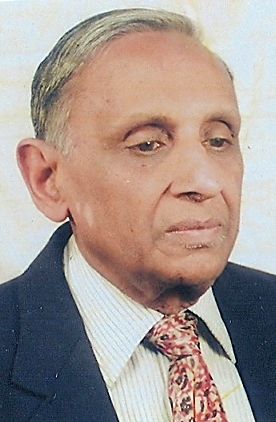Independence (?) of the Reserve Bank of India
Category:

R C Mody is a postgraduate in Economics and a Certificated Associate of the Indian Institute of Bankers. He studied at Raj Rishi College (Alwar), Agra College (Agra), and Forman Christian College (Lahore). For over 35 years, he worked for the Reserve Bank of India, where he headed several all-India departments, and was also the Principal of the RBI Staff College. Now (2013) 86 years old, he is engaged in social work, reading, writing, and travelling. He lives in New Delhi with his wife. His email address is rameshcmody@gmail.com.
Editor’s Note: Mr. Mody is a prolific contributor to this website. He has written a number of articles about pre-Independence India, and is now beginning to provide post-Independence articles. He worked with the Reserve Bank of India (RBI) for over 35 years. We look forward to further contributions from him about the RBI after Independence.
A news report in the Business Standard of April 2, 2015 A new milestone at Mint Road reminds me that the RBI, which is now 80 years old, was less than 14 years old when I joined it 1949. At that time, The Times of India in an editorial referred to it as a 14 year old young maiden. It is a thrill to see her attain a great grandmotherly age in my lifetime.
The year 1949 was momentous in the history of RBI. On January 1, 1949, it was nationalized and on March 16, the Dominion Parliament under the Banking Companies Act 1949, which made it virtually a monarch of the country's banking system, conferred vast powers on it. The media gave wide coverage to the Act, whole-heartedly welcoming the powers it conferred on RBI.
By then, C D Deshmukh was approaching the end of his historic tenure as the Bank's first Indian Governor. While he was happy at the new responsibility that the nation had entrusted to the Bank under the new banking law, he was sceptical about its nationalization (in fact, he had opposed it) from the viewpoint of its autonomy with regard to the Finance Ministry of the Government of India.
Deshmukh's concern became obvious in an agitated letter he wrote around April 1949 to K G Ambegaokar, Additional Secretary in the Finance Ministry. Deshmukh referred to Ambegaokar's letter to Datar, a senior RBI officer, asking Datar to come from Bombay (now Mumbai) to Calcutta to accompany Ambegaokar, where he was going to study the banking crisis in Bengal, in the wake of the Partition.
Deshmukh complained that it was wrong of Ambegaokar to directly contact Datar in the way he did, because it indicated that the Finance Ministry could treat a senior RBI officer as a subordinate. Instead, Deshmukh wrote, Ambegaokar should have asked Deshmukh or one of the RBI's Deputy Governors to make the services of Datar or another RBI officer available to Ambegaokar. The move on the part of Ambegaokar, Deshmukh contended, would give "wrong signals in the wake of recent nationalization of the Bank". Deshmukh ended the letter by adding, "I was so upset on seeing your letter that I tried to speak to you on phone but lines were not available."
_______________
In his April 2, 2015 article in the Business Standard, The Uneasy relationship TCA Srinivasa- Raghavan wrote:
Benegal Rama Rau's departure [from the post of the RBI Governor] has been well documented by the RBI itself in Volume Two of its history. He resigned after a public spat with the finance minister, TTK [T T Krishnamachari], who yelled at him outside the Cabinet room for sticking to his guns. Rama Rau, in deep dudgeon, asked Nehru for support. Nehru declined. Rama Rau resigned.
Let me add to this story. Rama Rau had resigned in January 1957 after an exchange of a series of letters between Prime Minister Nehru and Rama Rau. In one of these letters, Rama Rao complained to Nehru that he was "puzzled and pained by the tone and contents of your letter". Nehru, however, was unmoved. Nehru's reply ended with the terse sentence "If you wish you can send your formal resignation to the Finance Ministry." Rama Rau resigned, without giving any reason for his resignation.
After this, whenever media persons and others asked him about the reason, Rama Rau declined to say a word. The facts in this regard got publicly known only 40 years later in 1998 when RBI published Volume II of its history covering the years 1951-67\; both Nehru and Rama Rau had passed away much earlier.
In between, these years, I happened to be present at the Independence Day function on August 15, 1964, in a residential colony of the RBI where the residents had invited Rama Rau as the chief guest. Nehru had died a few months earlier. The people gathered around Rama Rau, pressing him that it was an occasion for him to reveal the seven-year old untold story behind his resignation. Rama Rau smiled and started his address by saying that "It is an occasion for remembering the great men who brought this day in our lives and the two greatest among them were Mahatma Gandhi and Jawaharlal Nehru."
© R C Mody 2015
Comments
Add new comment